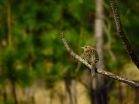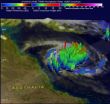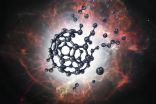(Press-News.org) MINNEAPOLIS - Researchers have developed a new scoring system to help determine which elderly people may be at a higher risk of developing the memory and thinking problems that can lead to dementia, according to a new study published in the March 18, 2015, online issue of Neurology®, the medical journal of the American Academy of Neurology.
"Our goal is to identify memory issues at the earliest possible stages," said study author Ronald C. Petersen, MD, PhD, of Mayo Clinic in Rochester, Minn., and a member of the American Academy of Neurology. "Understanding what factors can help us predict who will develop this initial stage of memory and thinking problems, called mild cognitive impairment (MCI), is crucial, because people with MCI have an increased risk of developing dementia."
The study involved 1,449 randomly selected people from Olmsted County, Minn., between the ages of 70 and 89 who did not have memory and thinking problems. At the start of the study and at visits every 15 months for an average of 4.8 years, participants were given memory and thinking tests. During the study, 401 people, or 28 percent, developed mild cognitive impairment.
The scoring system took into account factors that could be easily obtained from medical records, such as years of education, history of stroke or diabetes, and smoking. Researchers also factored in information obtained at the clinic visit, such as a test of thinking abilities and symptoms of depression and anxiety. Factors were assigned a score based on how much they contributed to the risk of developing thinking problems. For example, being diagnosed with diabetes before age 75 increased the risk score by 14 points, while having 12 or fewer years of education increased the risk by two points.
When the women's scores were divided into four groups, the lowest group had risk scores of less than 27 and the highest had scores of more than 46. For both men and women, those in the highest group of risk scores were seven times more likely to develop mild cognitive impairment than those in the lowest group.
Age, heart health risk factors, depression and anxiety disorders, and memory or functional abilities at the start of the study contributed most to the risk score. The APOE gene, which has been linked to a higher risk of dementia, was determined in the study to be only a moderate risk factor.
"This risk scale may be an inexpensive and easy way for doctors to identify people who should undergo more advanced testing for memory issues or may be better candidates for clinical trials," said Petersen.
INFORMATION:
The study was supported by the National Institutes of Health, the Robert Wood Johnson Foundation, the Robert H. and Clarice Smith and Abigail van Buren Alzheimer's Disease Research Program and the Rochester Epidemiology Project.
To learn more about dementia, please visit http://www.aan.com/patients.
The American Academy of Neurology, an association of more than 28,000 neurologists and neuroscience professionals, is dedicated to promoting the highest quality patient-centered neurologic care. A neurologist is a doctor with specialized training in diagnosing, treating and managing disorders of the brain and nervous system such as Alzheimer's disease, stroke, migraine, multiple sclerosis, brain injury, Parkinson's disease and epilepsy.
For more information about the American Academy of Neurology, visit http://www.aan.com or find us on Facebook, Twitter, Google+ and YouTube.
Media Contacts:
Rachel Seroka, rseroka@aan.com, (612) 928-6129
Michelle Uher, muher@aan.com, (612) 928-6120
ROCHESTER, Minn - Researchers at Mayo Clinic developed a new scoring system to help determine which elderly people may be at a higher risk of developing the memory and thinking problems that can lead to dementia. The study is published in the March 18, 2015, online issue of Neurology®, the medical journal of the American Academy of Neurology.
"Our goal is to identify people who are at the highest risk for dementia as early as possible" said study author Ronald Petersen, M.D., Ph.D., Chester and Debbie Cadieux Director of the Mayo Clinic Alzheimer's Disease Research ...
Preserving isolated patches of habitat isn't enough to save species such as Bachman's Sparrow (Peucaea aestivalis) that depend on longleaf pine; habitat connectivity at the landscape level is also crucial. That is the message of a new paper by Paul Taillie, M. Nils Peterson, and Christopher Moorman of North Carolina State University, published this week in The Condor: Ornithological Applications.
In the past, fire-dependent longleaf pine forests covered vast, unbroken areas of the southeastern U.S., and Bachman's Sparrows and other species adapted to live in this expansive ...
The TRMM satellite revealed that Tropical Cyclone Nathan had powerful thunderstorms known as "hot towers" near its center which are indicative of a strengthening storm.
Cyclone Nathan is located in the Coral Sea off Australia's Queensland coast. Nathan formed on March 10 near the Queensland coast triggering warnings there before moving east. Once out at sea, Nathan made a loop and headed back to Queensland.
On March 18, Nathan was nearing the Cape York Peninsula of Queensland. As a result warnings were in effect from Cape Melville to Innisfail, extending inland to Laura. ...
Modern life, with its preponderance of inadequate exposure to natural light during the day and overexposure to artificial light at night, is not conducive to the body's natural sleep/wake cycle.
It's an emerging topic in health, one that UConn Health (University of Connecticut, Farmington, Conn.) cancer epidemiologist Richard Stevens has been studying for three decades.
"It's become clear that typical lighting is affecting our physiology," Stevens says. "But lighting can be improved. We're learning that better lighting can reduce these physiological effects. By that ...
CORAL GABLES, Fla. (March 18, 2015) -- Come spring break, college students from all over the country travel to warmer climates for time off from school and to escape the cold weather. However, it's not all fun in the sun. At popular spring break destinations, fatalities from car crashes are significantly higher during the spring break weeks compared to other times of the year, according to a recent study published in the journal Economic Inquiry.
"We found that between the last week of February and the first week of April, a significantly greater number of traffic fatalities ...
There's a carbon showdown brewing in the Arctic as Earth's climate changes. On one side, thawing permafrost could release enormous amounts of long-frozen carbon into the atmosphere. On the opposing side, as high-latitude regions warm, plants will grow more quickly, which means they'll take in more carbon from the atmosphere.
Whichever side wins will have a big impact on the carbon cycle and the planet's climate. If the balance tips in favor of permafrost-released carbon, climate change could accelerate. If the balance tips in favor of carbon-consuming plants, climate ...
In 1996, a trio of scientists won the Nobel Prize for Chemistry for their discovery of Buckminsterfullerene - soccer-ball-shaped spheres of 60 joined carbon atoms that exhibit special physical properties.
Now, 20 years later, scientists have figured out how to turn them into Buckybombs.
These nanoscale explosives show potential for use in fighting cancer, with the hope that they could one day target and eliminate cancer at the cellular level - triggering tiny explosions that kill cancer cells without affecting surrounding tissue.
"Future applications would probably ...
BLOOMINGTON, Ind. -- An Indiana University cognitive scientist and collaborators have found that posture is critical in the early stages of acquiring new knowledge.
The study, conducted by Linda Smith, a professor in the IU Bloomington College of Arts and Sciences' Department of Psychological and Brain Sciences, in collaboration with a roboticist from England and a developmental psychologist from the University of Wisconsin-Madison, offers a new approach to studying the way "objects of cognition," such as words or memories of physical objects, are tied to the position ...
For generations, students have been taught the concept of "ecological succession" with examples from the plant world, such as the progression over time of plant species that establish and grow following a forest fire. Indeed, succession is arguably plant ecology's most enduring scientific contribution, and its origins with early 20th-century plant ecologists have been uncontested. Yet, this common narrative may actually be false. As posited in an article published in the March 2015 issue of The Quarterly Review of Biology, two decades before plant scientists explored the ...
Tirat Carmel, Israel - March 19, 2015 - MeMed, Ltd., today announced publication of the results of a large multicenter prospective clinical study that validates the ability of its ImmunoXpert in-vitro diagnostic blood test to determine whether a patient has an acute bacterial or viral infection. The study enrolled more than 1,000 patients and is published in the March 18, 2015 online edition of PLOS ONE. Unlike most infectious disease diagnostics that rely on direct pathogen detection, MeMed's assay decodes the body's immune response to accurately characterize the cause ...



